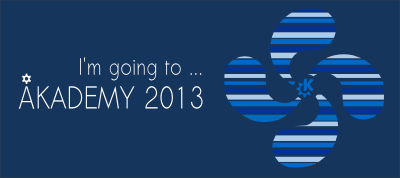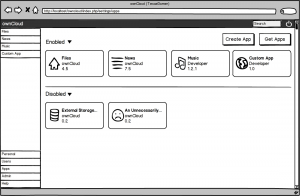KDE is once again taking part in Google Code-in this year, a contest to bring 13 to 17 year-olds closer to Free Software. I asked some of our students to write about their experience with KDE. Here’s the fifth one by José.
Many of you may have heard about the Google Code-In. In this opportunity, I am writing you about this, not as an spectator of the contest, but as a participant. As today, I have been participating with KDE, an organization which has a super huge community. Basically, what you have to do here, is claim some tasks (in different areas such as coding, outreach/research, analysis/statistics, etc.) and work on it with your mentors, in a specific period of time designated by them. Once it’s finished, the mentor will approve the work and mark the task as completed. But it’s not only about that, you can win the great prize, which includes a trip to the Googleplex!
Well, participating with KDE has been a great experience until now. In my two tasks (third counting this one) tasks I’ve had with KDE, the community and my mentors have been greatly helpful, which added to my efforts in doing the best possible work, ended up in what I think are great results and work. By doing this I don’t think you may only be able to win the prize, the simple and maybe abstract fact of helping a community, which is the main purpose behind all of this (from my point of view) is what makes your work valuable. Knowing there’s a community and people behind it, thanking you for what you’re doing, only that feels great. I know I may not be able to win the prize, but for me, helping the KDE community is more than enough to be satisfied for the work I’m doing, and I will continue doing.
The two tasks I chose with KDE were done with the Amarok team, which develop a music player in KDE. The first one involved reviewing 30 old bugs to see if I could reproduce them again. So, after some hours of work that involved screenshots, and typing in every single detail I saw, I got it done.
In the case of the second task, I had to do a report on a database that has been storing feedback for a long time. I had to review it, and classify it, making some nice charts about the general and specific statistics of each part of the database, and compare it to the last report, that had been done about a year before. This was a little more complicated, as while in the task, I got stuck in an airport for hours, and couldn’t do much. Anyways, I ended up finishing the task, and my mentors were satisfied and happy because of it. I also learned that people get to understand bar charts better than pie charts!
Anyways, I am 100% sure that the KDE community is more than grateful with all the efforts each person taking a task from them is doing. I would also like to remark the fact that many of you may have been collaborating with some other different organizations, which is completely fine in this case. The organization I prefer after considering many different aspects is KDE, so don’t feel discouraged if I’m talking about a different organization, it’s part of the contest. But overall, I can say that my experience until now has been great, and I don’t regret my choice.

